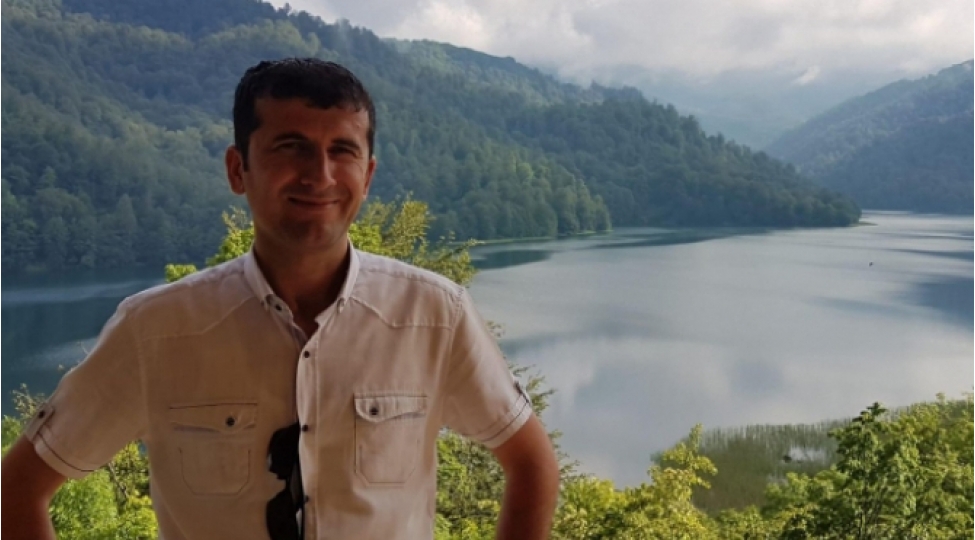Anar Maharramov: “There is a serious need for educational measures related to tourism, not only in the territories of Azerbaijan liberated from occupation, but in all regions”
Protection of the environment in our liberated territories, compliance with ecotourism standards and proper use of the region’s potential in this regard are important factors in economic reintegration. The massive return of the population to our liberated territories, the creation of settlements and modern infrastructure there has returned Karabakh to our society. However, the mass settlement of these areas, at the same time, the growing international interest in Karabakh, and the desire of foreign tourists to travel make the setting of tourism, especially ecotourism standards, urgent in the region. The opinions and suggestions of experts and scientists on the subject are of interest to our society.
Our interviewee is Anar Maharramov, a social activist who is active in the field of tourism and has extensive experience in hotel management.
– How do you evaluate the measures implemented within the protection of the environment, including water bodies and their bioresources, as well as other natural resources, in the liberated territories?
-Reconstruction works in liberated areas and preservation and restoration of water basins, reservoirs, etc. a lot can be said about the work done in this direction. Let me mention only one example related to the Sarsang reservoir, which will create promising tourism opportunities in the region thanks to the preservation of the natural environment. . Thus, the area where the Sarsang reservoir is located is very high from a hypsometric point of view and was built at a height of about 726 m above sea level. The complexity of the coastline allows the organization of various types of economic activities on the shore of the reservoir.
Furthermore, thanks to the Sarsang reservoir, 100-120 thousand hectares of cultivated land of 6 administrative districts can be provided with continuous irrigation water, including 400 about a thousand people have the opportunity to use water. For the organization of processions around the reservoir, measures such as the organization of new tourist trails and the construction of a cableway over the reservoir can also be taken. The hydrochemical composition of the Sarsang reservoir should be studied and the possibility of organizing and developing beach, fishing and related tourism types should be evaluated here.
A lot can be said about the rivers. For example, the abundance of Tartarchay, including the presence of its many tributaries (Tutgun, Agdabanchay, Meydanchay, Lev, Toraghaychay, etc.) conditions the development of river tourism by creating opportunities for kayaking, rafting, kayaking and catamaran travel.
– What prospects do you see for the development of ecotourism? Are you satisfied with the measures taken?
– Let me note one point that since I have a higher education in the field of tourism, and in this direction not only from a scientific point of view, but also as someone with many years of experience, I can say that ecotourism is becoming an increasingly popular destination. In general, one of the currently relevant types of tourism is ecotourism. Ecotourism has emerged as a new concept in the last decade. This term has been used frequently in recent years and has been presented under different names at different times. For example, nature-based tourism, soft tourism, green tourism, alternative tourism, etc. Summarizing, we can say that ecotourism is environmental ecology, purposeful protection of nature, and the need to treat it sensitively. Ecotourism is a type of tourism that does not harm the environment, ensures the protection of natural resources and limits their retail use.
There are many perspectives in this regard in Karabakh. In this region, rich in forests, it is possible to develop camping tourism without harming the greenery, but using this charming nature. There is also the prospect of water bodies. For example, by developing fishing in a number of rivers, tourists can be invited to enjoy fishing here. You can also use the factor of historical monuments to organize hikes and trips to the mountains, temples and caves in the mountains. There are so many perspectives that it is impossible to count…
As you know, large-scale restoration and construction works are being carried out in the region according to the State Program for the Great Return to the occupied territories of the Republic of Azerbaijan. Our state is trying to take advantage of the wide tourism potential for the development of various types of tourism in Karabakh. In this sense, tourism will be one of the main areas in the restoration of the region. In the post-conflict period, the best practices for the development of tourism should be studied, and propaganda should be strengthened. Investment needs of the region should be investigated. I think this has already been done. The investment environment, including the process of attracting investors to the territories, should be further improved.
– “Green growth” is one of the priority issues. What do you think about this?
-Just 3 years ago, the realization of five National Priorities for the country’s socio-economic development within ten years was set as a goal. These were a country with a sustainable growing competitive economy, a dynamic, inclusive and social justice based society, competitive human capital and a place for modern innovation, a great return to the liberated territories, a clean environment and “green growth”. The last national priority has now become the most discussed issue. Becoming a clean environment and “Green Growth” country is not an easy task. We are taking serious steps in this direction.
Taking into account the extent of global climate changes, we give a significant place to the application of environmentally friendly technologies. In addition, we promote the use of clean energy sources, waste recycling and remediation of contaminated sites. This will be an important contribution to the efforts made in the direction of maintaining the gas emission that creates a heating effect at a level consistent with international standards. Together with the promising economic development of the country, environmental health, rapid restoration and increase of greenery, efficient use of water resources and sustainable energy sources should be ensured. Within this priority, the effective realization of two goals should be achieved in the strategic period. These are high-quality ecological environment, green energy space. The listed measures are also actively implemented during the reconstruction of Karabakh. Speaking about the high-quality ecological environment, we can say that a high-quality and clean ecological environment must be protected in the liberated areas and in the country in general, and efficient use of resources must be ensured. In addition, the comprehensive solution of environmental problems that have arisen over many years and sustainable development in this field should be in focus. In the coming years, risks to the environment due to economic and demographic growth and mass migration to liberated areas should be reduced. For this purpose, the share of greenery in the total area of the country should be increased. Economic growth and ecological environment should be balanced. Our existing resources should be restored by involving unused land plots in the country. The country’s demand for quality water should be met by efficient use of water resources.
-Education of the population relocated to the regions, ecotourism enthusiasts, amateur fishermen and other groups in terms of environment and ecotourism is the need of the day. What actions are needed in this direction?
– Media and NGOs can have their say in this sense. Although the direction of activity of the NGO I currently manage is somewhat different, we try to make certain educational calls regarding the liberated areas in our events and projects. As a tourism activist, ecotourism enthusiast, and someone with extensive experience in hotel management, I can say that not only the territories freed from occupation, but all regions of Azerbaijan are in serious need of such educational events. If some residents or visitors do not litter the water bodies, it will be a kind of lesson for the masses who come to the area later. That is, if the visitor sees a pile of garbage somewhere, he throws the waste in his hand there. But a tourist or guest who sees everywhere clean is not willing to leave waste to nature in most cases. A large number of educative, effective appeal posters or pictures can be posted on roadsides in forests near water bodies. Media organizations can also often publish reports from some polluted area and keep the issue on the agenda, so that the people who come there later realize their responsibility and do not take a similar step a second time. Fish lovers tend to complain the most. When they go to water bodies, they complain about the littering of the area or the destruction of fish by using electricity. I hope that such steps will happen very rarely in the liberated areas. Because the bioresources in the water bodies in the liberated areas are somewhat different and richer.
The article was prepared within the framework of the “Ecotourism standards in liberated areas” project implemented by the Public Union of Integration to the Globalized World with the financial support of the State Support Agency for Non-Governmental Organizations of the Republic of Azerbaijan. The position of the author or the interviewee and the position of the State Support Agency for Non-Governmental Organizations may not be consistent.


